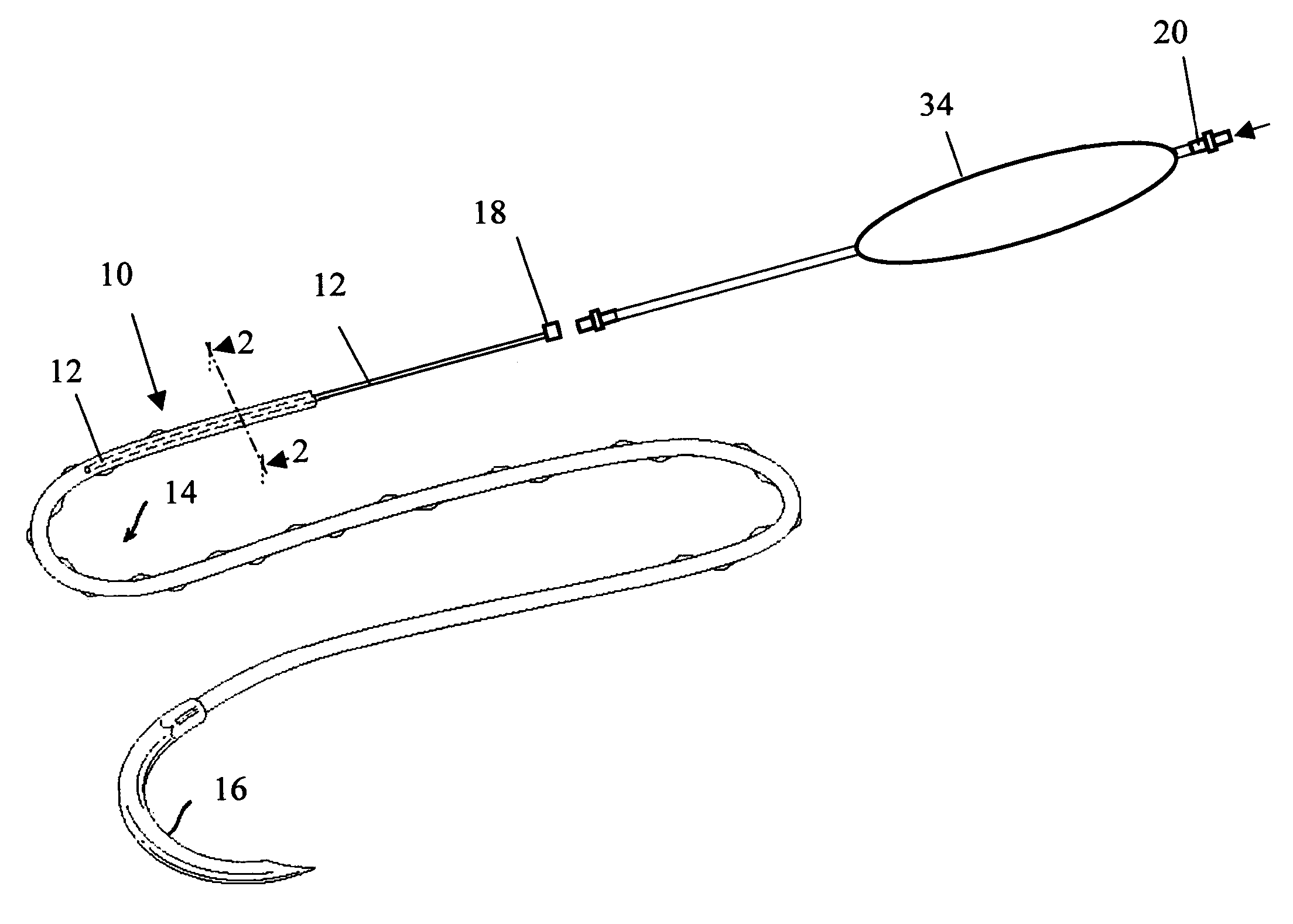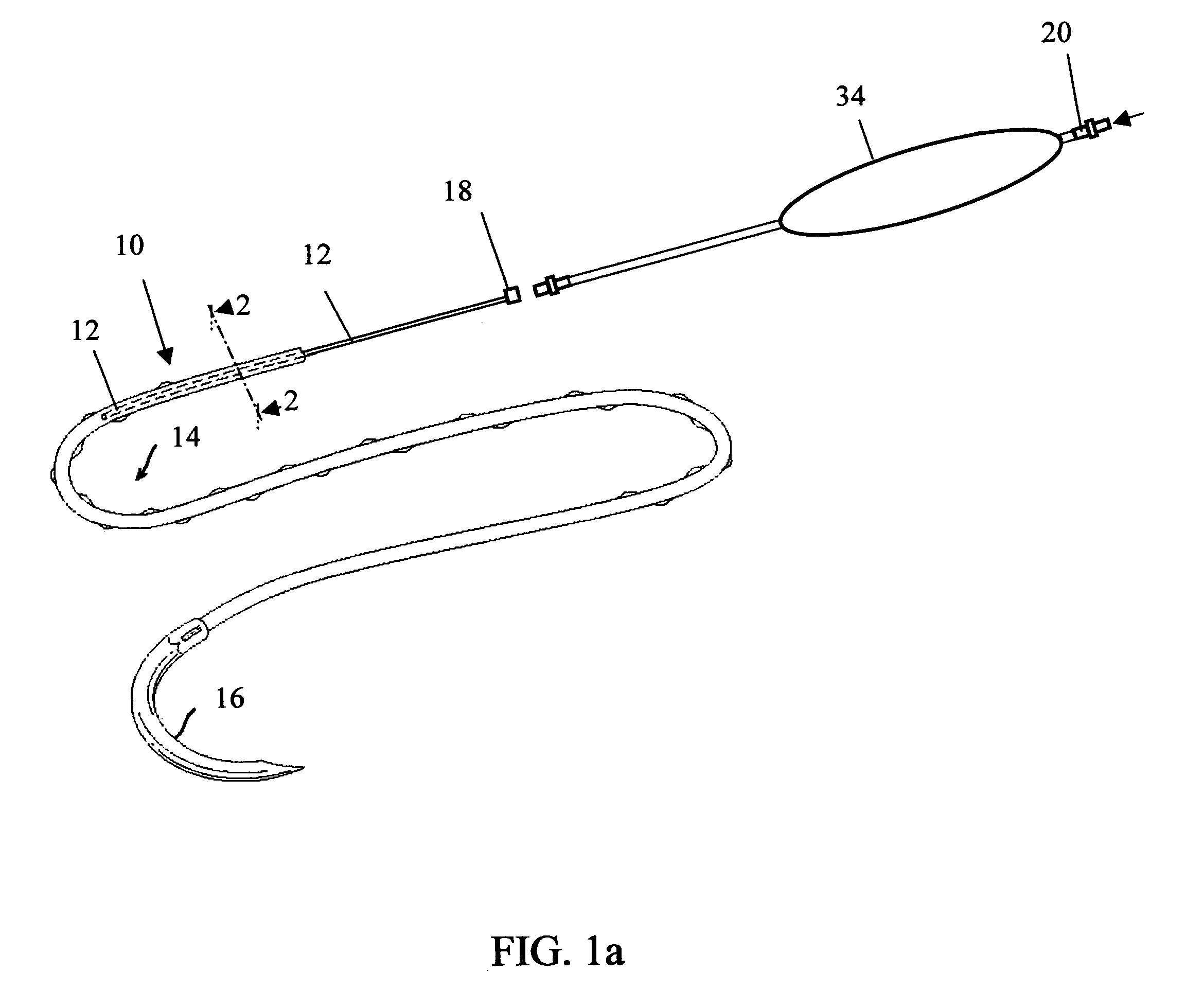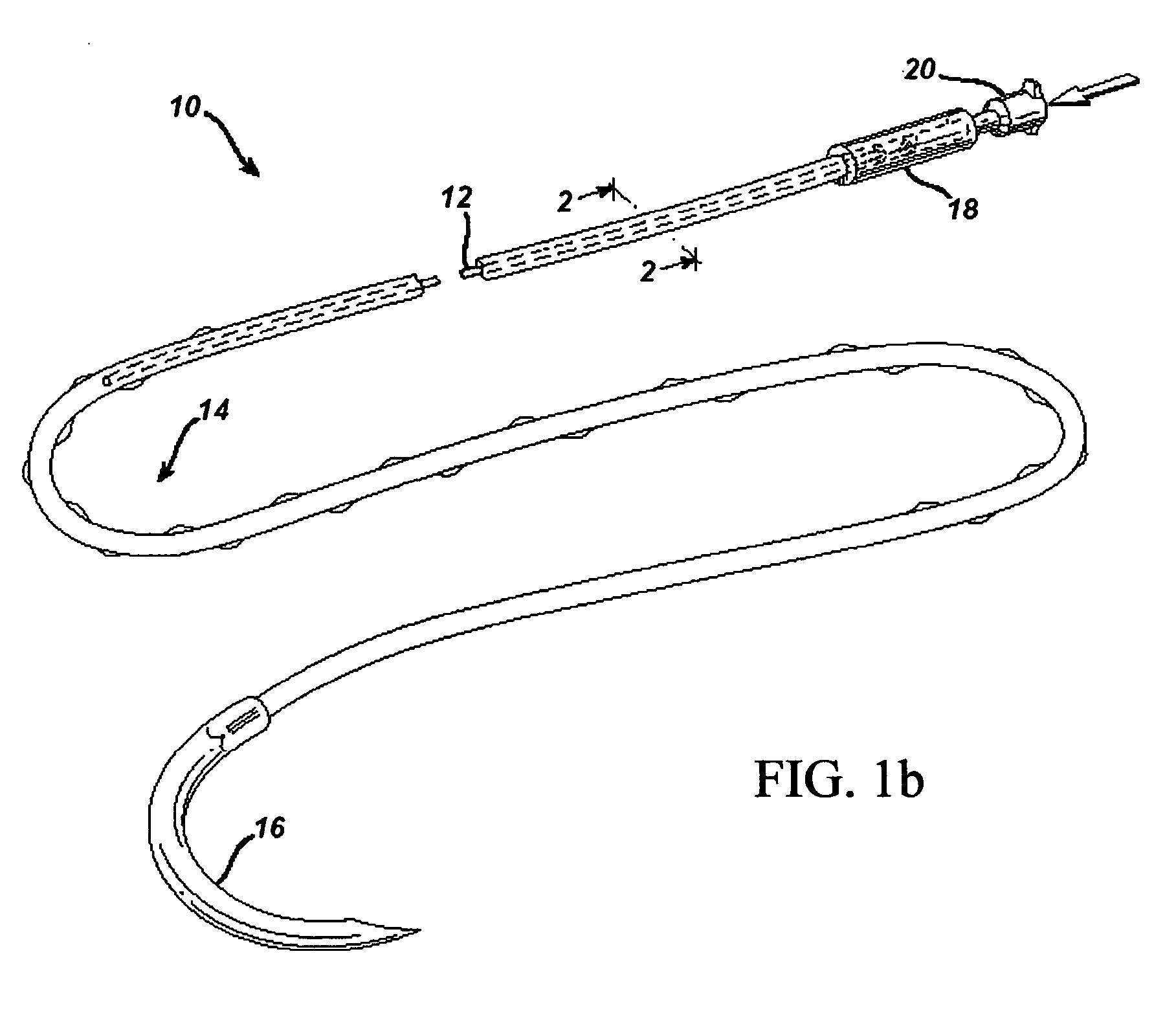Active suture for the delivery of therapeutic fluids
a technology of active sutures and therapeutic fluids, applied in the field of functional sutures, can solve the problems of not being safe to deliver, not demonstrating the form and function of a device that could cost-effectively facilitate localized delivery of therapeutic fluids to the wound site over an extended period of time, and not providing efficacy
- Summary
- Abstract
- Description
- Claims
- Application Information
AI Technical Summary
Benefits of technology
Problems solved by technology
Method used
Image
Examples
example 1
[0044] In order to demonstrate the ability of the active suture to distribute a fluid to surrounding tissue, a PET braided suture, containing a polypropylene tube that terminates within the braided suture, as depicted in FIGS. 1b, and 4a, was employed in an in vitro experiment wherein the active suture was passed multiple times though gelatin and subsequently connected to an IV delivery system that delivered water containing a blue pigment to the portion of the active suture that was imbedded in the gelatin. A series of time-elapsed images are shown in FIGS. 10a, 10b and 10c. FIG. 10a, taken at the onset of the experiment, shows the active suture 70 embedded in gelatin 72. The black mark on the active suture 74 indicates the location at which the internal passageway terminates. As time progresses, the pigment 76 spreads out around the active suture as shown in FIG. 10b. Ultimately, as shown in FIG. 10c, the fluid spreads to encompass the entire region surrounding the wound.
example 2
[0045] The incorporation of internal passageways into the active sutures should not compromise the tensile strength and knot tensile strength of the sutures to below standard acceptable levels if the active suture is to be used for both wound approximation and fluid infusion. The knot tensile strengths of PET braided sutures in United States Pharmacopia (USP) standard sizes of 0 and 2 that have polypropylene tubes imbedded along side their core filaments were measured according to United States Pharmacopia (USP) standard 23. Size 0 sutures contained tubes with outside diameters of approximately 130 μm and inside diameters of ˜75 μm, and size 2 sutures contained tubes with outside diameters of approximately 230 μm and inside diameters of ˜135 μm. For each test, at least 10 samples were tested per USP specifications. The performance of the PET braided sutures containing the polypropylene tubing at their core easily exceeded minimum performance requirements as set by USP standards, wit...
example 3
[0046] Experimental data indicates that extruded polymeric tubes produced from polypropylene, with outside diameters ranging from 0.005″ to 0.010″, with Youngs Moduli ranging between 0.1 and 3 GPa, with outside diameters (O.D.s) that are less than 1.7 times that of their inside diameters (I.D.s) will buckle and collapse when the braided sutures in which they are embedded are tied into square knots similar in form to those commonly used in surgical procedures. Similar experiments conducted with polymeric tubes comprised of polyethylene and polytetraflouroethylene tubes with Youngs moduli ranging between 0.1 and 3 GPa with O.D. to I.D. ratios of greater than 2.3 do not collapse completely inside the square knots of the active suture and fluid can indeed be transferred through the knotted portions. For active sutures that will be tied into knots, preferably the ratio of the O.D. to I.D. is greater than 1.7. More preferably, the ratio of the O.D. to I.D. is greater than 2.0. In these ex...
PUM
 Login to View More
Login to View More Abstract
Description
Claims
Application Information
 Login to View More
Login to View More - R&D
- Intellectual Property
- Life Sciences
- Materials
- Tech Scout
- Unparalleled Data Quality
- Higher Quality Content
- 60% Fewer Hallucinations
Browse by: Latest US Patents, China's latest patents, Technical Efficacy Thesaurus, Application Domain, Technology Topic, Popular Technical Reports.
© 2025 PatSnap. All rights reserved.Legal|Privacy policy|Modern Slavery Act Transparency Statement|Sitemap|About US| Contact US: help@patsnap.com



